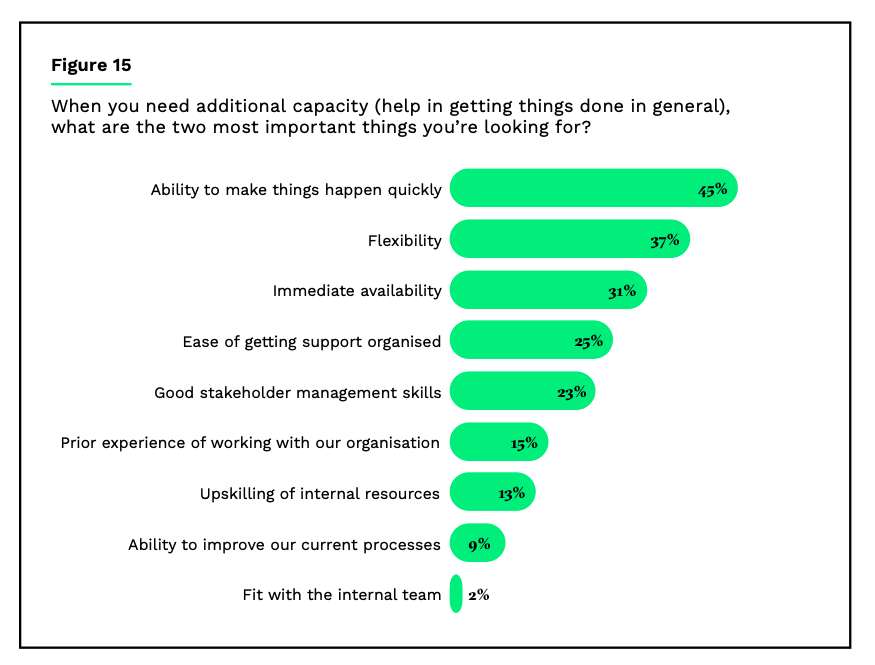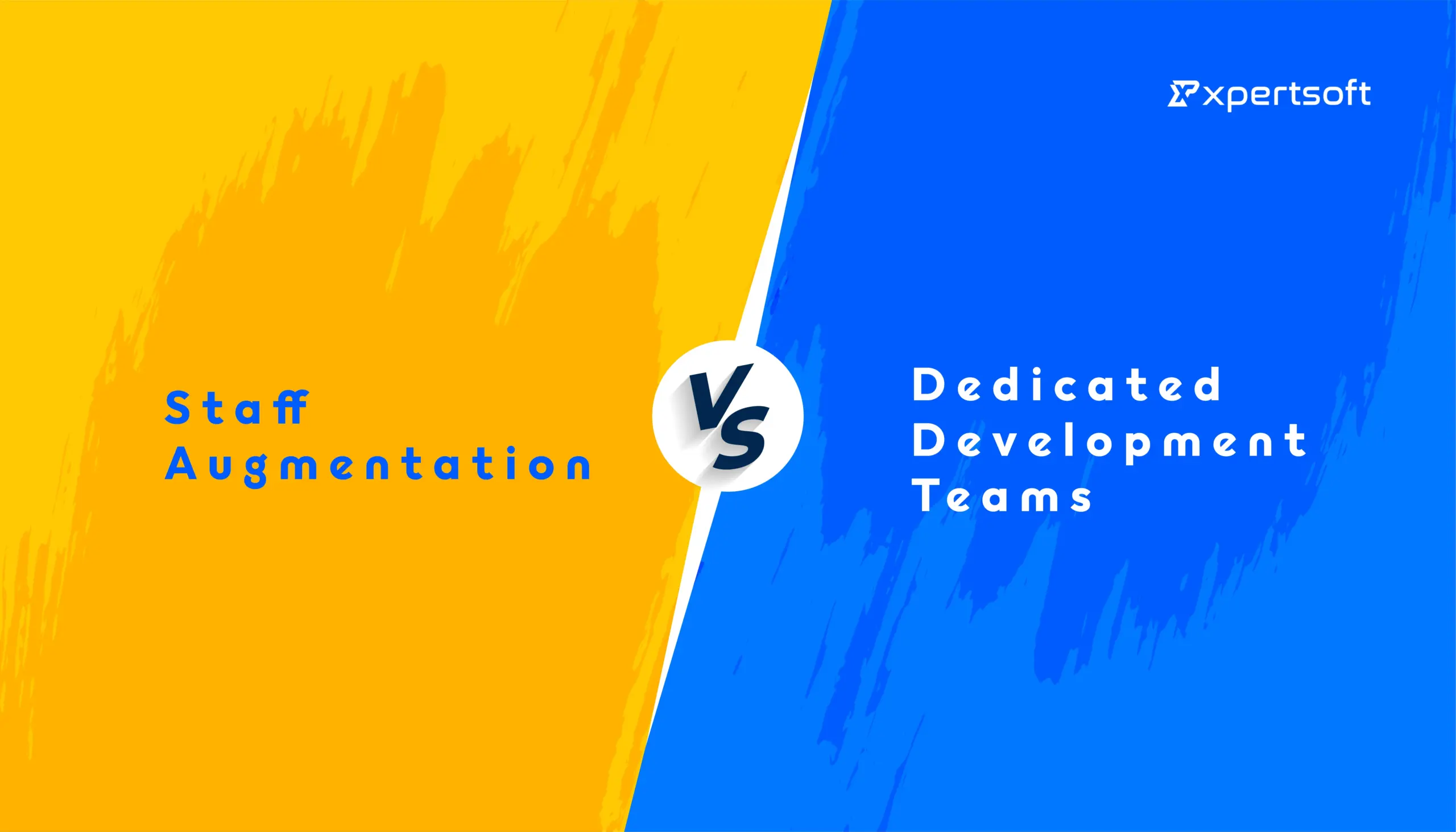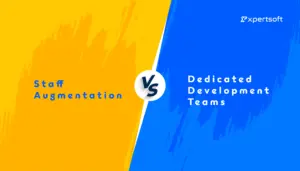When your company faces the need to scale its development capabilities, choosing the right engagement model is a critical decision. Two of the most popular approaches—staff augmentation and dedicated development teams—offer distinct advantages, but they also come with their own challenges. Understanding the differences between these models will help you make an informed decision that aligns with your business goals, timeline, and project scope. In this article, we’ll explore the debate staff augmentation vs dedicated development team, helping you identify which model fits best for your specific needs.
Staff Augmentation vs Dedicated Development Team: Why Choosing the Right Engagement Model is Crucial
One of the most common mistakes businesses make is selecting an engagement model based solely on short-term needs, without considering the full project lifecycle. The right model not only affects your project’s success but also impacts your costs, time to market, and ability to scale efficiently.
Understanding these models in-depth will help decision-makers like CEOs, CTOs, and project managers make strategic choices that support long-term growth.
What is Staff Augmentation?
Staff augmentation involves integrating external developers or IT professionals into your existing in-house team to fill temporary skill gaps. It’s essentially a “rent-a-developer” model where you maintain full control of the project and the augmented staff work under your direct supervision. The external developers act as temporary team members, supplementing your workforce as needed.
Key Characteristics of Staff Augmentation:
- Short-term or project-based: Ideal for companies that need extra resources for a specific task or project.
- Direct management: Your internal team manages the external resources directly, giving you full control over the project’s direction.
- Flexible scaling: You can easily scale up or down depending on your current workload or project requirements.
- Access to specific skill sets: Staff augmentation allows you to bring in specialized talent, like an AI developer or a UX/UI designer, for the duration of the project without long-term commitments.
What is a Dedicated Development Team?
A dedicated development team is an external, full-fledged team of developers who are fully integrated into your project but work independently under the management of an external vendor. These teams are typically long-term partners that handle entire projects from start to finish, acting as an extension of your business.
Businesses seeking long-term collaboration and consistent project development often turn to dedicated teams. These teams handle the entire project lifecycle, ensuring sustained progress and flexibility for future updates. As highlighted in the chart below, companies increasingly favor dedicated teams for projects requiring ongoing development and strong vendor partnerships.

Key Characteristics of a Dedicated Development Team:
- Long-term collaboration: Suitable for large-scale or ongoing projects that require continuous development and maintenance.
- Managed by the vendor: The team operates independently and is managed by the service provider, relieving your in-house staff of day-to-day project management.
- End-to-end solutions: The team covers all aspects of development, including design, architecture, testing, and maintenance.
- Full commitment: The team is dedicated to your project and works exclusively for your business during the engagement period, offering consistent collaboration and long-term planning.
Comparing Staff Augmentation vs. Dedicated Development Team
One of the main reasons companies opt for staff augmentation is the ability to quickly fill skill gaps in high-demand areas such as IT, data analytics, and software development. As shown in the chart below, flexibility and the ability to engage skilled talent quickly are the most valued aspects of this model.

1. Control and Management
- Staff Augmentation: You maintain full control of the project, including timelines, tasks, and deliverables. The augmented staff follow your processes and management structure, ensuring that they work within your existing framework.
- Dedicated Team: The vendor takes responsibility for managing the team and the project’s progress. You communicate with a team lead, but the day-to-day operations are handled by the external team.
✅ Which is better? If you prefer hands-on management and have a robust internal structure, staff augmentation may be ideal. However, if you need to focus on business strategy and leave the technical details to the experts, a dedicated team can offer greater peace of mind.
2. Project Scope
- Staff Augmentation: Best suited for well-defined, short-term projects or when you need additional resources for specific parts of a larger project. It’s ideal when your team is capable of handling most of the project but requires specialized skills temporarily.
- Dedicated Team: Ideal for complex, large-scale projects that require long-term development and a continuous workflow. The team is involved in every stage of the project, from planning to execution and post-launch maintenance.
✅ Which is better? If your project has a clear end date and specific deliverables, staff augmentation is a good fit. But for ongoing projects with evolving requirements, a dedicated team provides stability and continuity.
3. Cost Efficiency
- Staff Augmentation: Cost-effective for short-term needs, as you only pay for the talent you need when you need it. There’s no long-term commitment, and costs are directly tied to the hours worked.
- Dedicated Team: While more costly upfront, dedicated teams offer better long-term value for larger projects. Since the team is fully committed to your project, you benefit from increased efficiency and reduced management overhead.
✅ Which is better? For short-term or budget-sensitive projects, staff augmentation is generally more cost-effective. However, if you’re looking for long-term investment in a large project, a dedicated team may offer greater returns over time.
4. Flexibility and Scalability
- Staff Augmentation: Extremely flexible, allowing you to quickly scale your team up or down depending on project needs. You can add specialists for specific tasks and remove them once the work is done without affecting your core team.
- Dedicated Team: While dedicated teams can scale, it’s typically done within the scope of a longer-term relationship. The team may grow as your project evolves, but scaling is less immediate than with staff augmentation.
✅Which is better? If your business frequently experiences fluctuating development needs, staff augmentation offers the flexibility to adjust your resources in real-time. For consistent, predictable scaling, a dedicated team is a more stable option.
5. Integration with Internal Teams
- Staff Augmentation: Since augmented staff work directly with your in-house team, integration is often seamless. They follow your internal processes, making collaboration straightforward and efficient.
- Dedicated Team: While still collaborative, a dedicated team may require more time to align with your internal culture and processes. They function as an external unit, which can sometimes create communication or coordination gaps.
✅Which is better? If maintaining tight integration with your in-house team is critical, staff augmentation is a better fit. A dedicated team can work well if you’re comfortable with an external unit managing specific parts of the project.
6. Speed to Market
- Staff Augmentation: Provides immediate access to specific skills, helping you meet tight deadlines by adding resources quickly. This can be a game-changer for time-sensitive projects.
- Dedicated Team: While the onboarding of a dedicated team may take longer, their long-term involvement ensures continuous development without delays, making them highly effective for complex projects that need steady progress.
✅Which is better? If speed is of the essence and you need additional help quickly, staff augmentation can get you there faster. For projects that require long-term commitment and a solid foundation, a dedicated team might be slower at first but delivers more sustainable results over time.
When to Choose Staff Augmentation
Staff augmentation is the right choice if:
- You need short-term support for a specific project or phase.
- You want to retain full control of project management and decision-making.
- Your internal team lacks specific skills or resources temporarily.
- You prefer flexible scaling and cost-efficiency for temporary engagements.
💡Example: A startup requires a senior mobile developer for a 6-month period to accelerate the launch of their app. Staff augmentation allows them to hire the developer for that specific time frame without committing to a long-term employment contract.
When to Choose a Dedicated Development Team
A dedicated team is best suited for:
- Long-term projects with evolving requirements.
- Businesses looking to outsource entire projects, from planning to execution.
- Companies that prefer minimal involvement in day-to-day management.
- Projects that require a consistent and collaborative relationship with an external team.
💡Example: An enterprise wants to build a large-scale SaaS platform that will require continuous development, updates, and maintenance. A dedicated development team allows them to focus on business strategy while an expert team manages the product’s lifecycle.
Staff Augmentation vs Dedicated Development Team: Which wins?
Choosing between staff augmentation and a dedicated software development team depends on your project’s scope, duration, and the level of control you want to retain. For short-term, specialized needs where flexibility and control are essential, staff augmentation is the best option. On the other hand, for long-term, complex projects that require consistent effort and expertise, a dedicated team will provide the most value.
If you’re still unsure which model works best for your business, contact us for a consultation. We’ll help you evaluate your project needs and choose the right engagement model to drive success.



